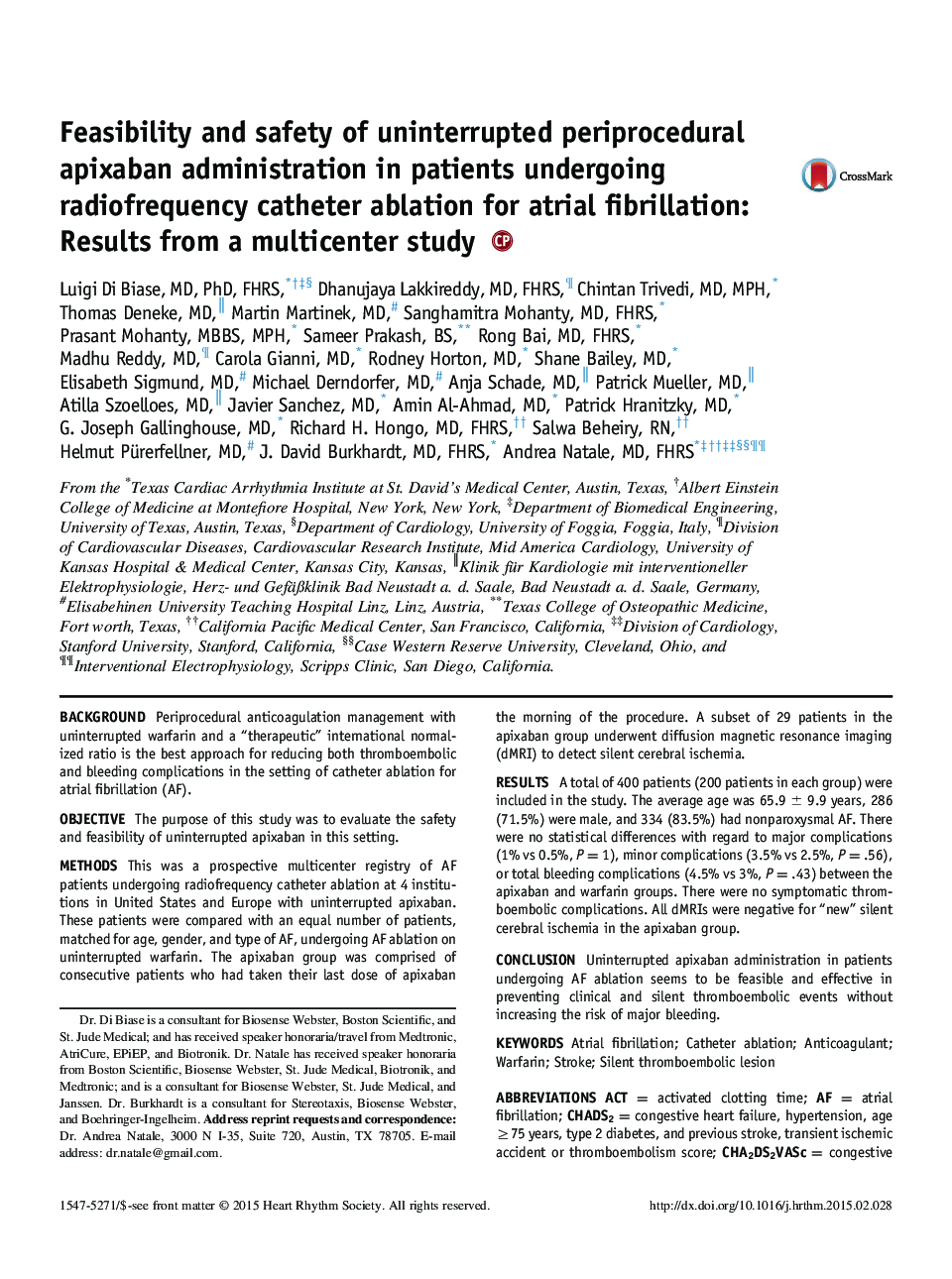| Article ID | Journal | Published Year | Pages | File Type |
|---|---|---|---|---|
| 5960132 | Heart Rhythm | 2015 | 7 Pages |
BackgroundPeriprocedural anticoagulation management with uninterrupted warfarin and a “therapeutic” international normalized ratio is the best approach for reducing both thromboembolic and bleeding complications in the setting of catheter ablation for atrial fibrillation (AF).ObjectiveThe purpose of this study was to evaluate the safety and feasibility of uninterrupted apixaban in this setting.MethodsThis was a prospective multicenter registry of AF patients undergoing radiofrequency catheter ablation at 4 institutions in United States and Europe with uninterrupted apixaban. These patients were compared with an equal number of patients, matched for age, gender, and type of AF, undergoing AF ablation on uninterrupted warfarin. The apixaban group was comprised of consecutive patients who had taken their last dose of apixaban the morning of the procedure. A subset of 29 patients in the apixaban group underwent diffusion magnetic resonance imaging (dMRI) to detect silent cerebral ischemia.ResultsA total of 400 patients (200 patients in each group) were included in the study. The average age was 65.9 ± 9.9 years, 286 (71.5%) were male, and 334 (83.5%) had nonparoxysmal AF. There were no statistical differences with regard to major complications (1% vs 0.5%, P = 1), minor complications (3.5% vs 2.5%, P = .56), or total bleeding complications (4.5% vs 3%, P = .43) between the apixaban and warfarin groups. There were no symptomatic thromboembolic complications. All dMRIs were negative for “new” silent cerebral ischemia in the apixaban group.ConclusionUninterrupted apixaban administration in patients undergoing AF ablation seems to be feasible and effective in preventing clinical and silent thromboembolic events without increasing the risk of major bleeding.
